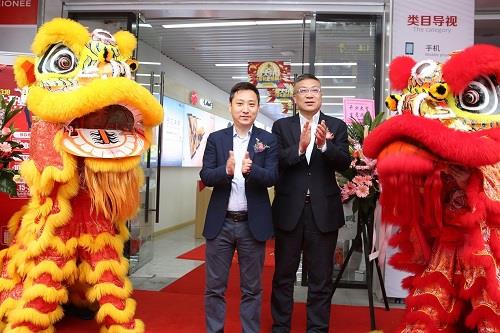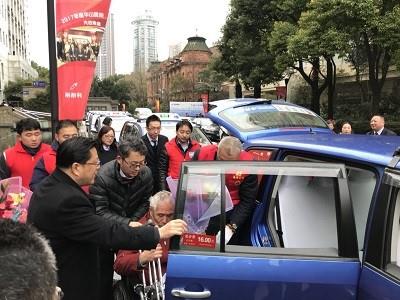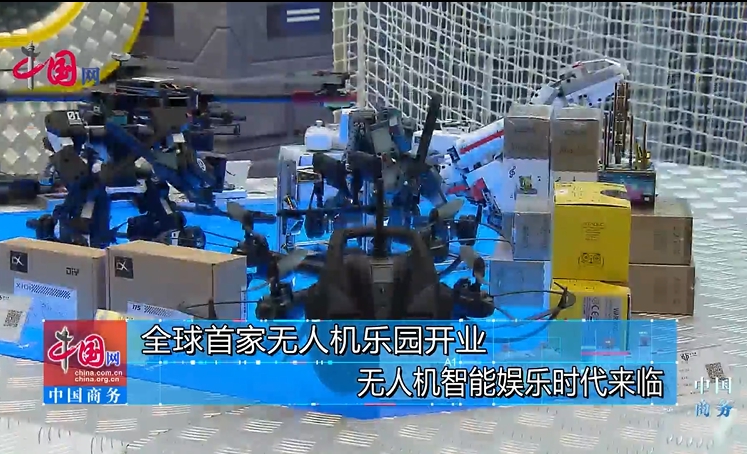
In recent years, the Shanghai Municipal Commission of Commerce has strengthened its services to facilitate outbound investment. It has supported enterprises to engage in overseas cooperation to develop the Silk Road Economic Belt and 21st Century Maritime Silk Road (Belt and Road). While supporting such cooperation, the commission has focused on key sectors, regions and projects. It has also worked to see to it that infrastructure connectivity, international production capacity cooperation and overseas economic and trade cooperation zones are respectively the forerunner, core and vehicle for such cooperation. With these efforts, the commission has helped Shanghai achieve positive results in investment cooperation in Belt and Road countries.
246 projects with a total investment of 4.59 billion US dollars
In the three years between 2014 and 2016, Shanghai carried out 246 investment projects in Belt and Road countries and regions with the actual investment amounting to 4.59 billion US dollars, or 9.2 percent of the national total, increasing 1.6 times on average annually. Shanghai contracted to undertake 3,019 major projects overseas in the same period, the contract value of which amounted to 21.7 billion US dollars, or 7 percent of the national total, increasing by an annual average of 9.4 percent. In the first eight months of this year, Shanghai enterprises filed to invest 850 million US dollars in Belt and Road countries and regions, accounting for 14.4 percent of the city's total outbound investment, and the actual investment already made was 610 million US dollars. Shanghai enterprises signed contracts worth 1.93 billion US dollars to undertake projects in 17 Belt and Road countries in the same period, accounting for 67.3 percent of the total contract value Shanghai enterprises have landed in contracting foreign projects. Shanghai enterprises’ business turnover from contracting projects in Belt and Road countries rose 10.4 percent year on year to 2.86 billion US dollars, accounting for 73.1 percent of the total business turnover from contracting foreign enterprises by Shanghai enterprises.
Shanghai's outbound investment cooperation in Belt and Road countries and regions has the following characteristics.
First, investment in equipment manufacturing has seen positive outcomes and international production capacity cooperation moves ahead in an all-round way. Major breakthroughs have been made especially in such areas as tire manufacturing, auto manufacturing, apparel and textiles, coal-fired power plants, iron and steel smelting and cement production. For example, Shanghai Huayi (Group) Company signed a contract to invest 300 million US dollars in a rubber tire manufacturing project in Thailand; an SAIC Motor-invested new plant for manufacturing complete vehicles was put into use in Thailand.
Second, cooperation has focused on technological innovation, resources and energy, and Shanghai enterprises have constantly enhanced the level of their“going global” activities as their capacities for such activities grows. For example, in order to expand both upstream and downstream in the oil and gas industry, China CEFC Energy Company Limited participated in oil field exploitation in Russia through equity purchase and acquired Kazakhstan's DGT LLP. Fusun Pharma bought into Gland Pharma, the first liquid injectable facility in India to be accepted by USFDA. Ant Financial bought into India's ONE97 and increased its registered users to 140 million from 20 million with only one year.
Third, a number of infrastructure connectivity projects have been completed, benefiting the economic development of Belt and Road countries. Shanghai has focused on supporting enterprises to expand markets along the Belt and Road through such innovative ways as PMC, BOT and PPP. Since the beginning of this year, Shanghai enterprises have helped drive China's export of complete sets of large equipment by 1.57 billion US dollars through contracting foreign projects. For example, STEC has contracted to undertake 15 subway projects in Singapore; it has also participated in the construction of many subway sections in the Indian cities of Delhi, Chennai and Bombay.
Fourth, the construction of overseas cooperation zones has produced positive outcomes, and Shanghai enterprises have gained an obvious advantage by collaborating with each other in“going global.” The Morowali Tsingshan Industrial Park is a national-level overseas economic and trade cooperation zone in Indonesia constructed by Shanghai Decent Investment. The park and the companies inside it have seen their investment exceed 3 billion US dollars. With its aggregate output value reaching upwards of 1.5 billion US dollars, the park has generated close to 13,000 jobs for local people and a tax revenue of roughly 140 million US dollars for the local government.
Five-pronged integrated support for enterprises“going global”
To better support enterprises going global, the Shanghai Municipal Commission of Commerce has been committed to building an international, professional and market-oriented public service platform in recent years. It aims to create an ecosystem whose core function is to serve enterprises“going global” through developing a public service system featuring five-pronged integrated support, namely information service, financing service, investment promotion, personnel training and risk prevention.
First, information service The commission launched China's first WeChat official account for facilitating“going global.” Called“Service hub for going global,” the account releases guides for investment cooperation in key countries and sectors, and delivers laws and regulations, industrial policies and security situation in Belt and Road countries in a timely manner. The account currently has over 30,000 followers and its posts have received 3.4 million page views altogether. The commission has procured professional services to compile and publish investment guides for 30 key countries and regions including 16 key industries. This year it handed out free of charge investment cooperation guides focusing on the four professional areas of hiring workers overseas, social responsibility, intellectual property rights protection and international taxation.
Second, financing service The commission has helped match up the personalized financing needs of enterprises going global with suitable institutions. It has set up a working mechanism with China Development Bank, the Export-Import Bank of China, and China Export and Credit Insurance Corporation to match up government agencies and banks with enterprises' financing needs, and helped enterprises secure funds for undertaking Belt and Road projects through channels such as the Silk Road Fund and Asian Infrastructure Investment Bank.
Third, investment promotion The commission has been striving to create a global trade and investment network. It has strengthened cooperation with overseas trade and investment institutions and professional services. In order to explore new areas and opportunities of cooperation, it has organized close to 100 activities annually to promote investment cooperation. Meanwhile, with the commission's facilitation, Shanghai has forged closer economic and trade partnerships with a number of Belt and Road countries and some key node cities and sister cities along the routes by signing memorandums on economic and trade cooperation relations with relevant government agencies, investment promotion institutions and business associations.
Fourth, personnel training The commission has organized personnel trainings in order to back enterprises going global with human resources. Shortage of talents with a global vision has been a bottleneck for enterprises as they go global. To remove the bottleneck, the commission has procured professional training services to train corporate personnel in law, taxation, financing, commerce, human resources, post-acquisition management, overseas projects contracting, social responsibility, risk prevention and other areas involved in cross-border operation. So far over 15,000 people have received such trainings.
Fifth, risk prevention The commission has further improved a cross-departmental mechanism to cope with overseas emergencies. It has compiled guides on preventing safety risks overseas and on how to behave in cross-border operations. It has also carried out a training scheme for preventing safety risks overseas, which include training courses on practices to prevent safety risks and on corporate social responsibilities. In areas where safety risks are prominent, the commission has strengthened point-to-point services through inter-governmental cooperation mechanisms and supported Chinese-funded enterprises to prevent and defuse risks overseas by buying commercial insurances.
Developing Shanghai into a Bridgehead for the Belt and Road Initiative
Going forward, the commission will fully put into practice the guiding principles from General Secretary Xi Jinping' s major addresses when striving to improve trade connectivity. According to the commission, in boosting trade connectivity, China (Shanghai) Pilot Free Trade Zone should serve as a vehicle for institutional innovation, economic and trade cooperation should be the area to seek breakthroughs in, financial services should play a supporting role, infrastructure construction should be the key area, cultural exchanges and personnel training should help promote people-to-people bonds, and Shanghai’s cooperation with its sister cities and multinationals worldwide should be the areas to start with. The goal is to help Shanghai acquire the four major functions of promoting institutional innovation, conducting factors allocation, serving as a trade hub, and promoting openness and cooperation needed to develop itself into a bridgehead for the Belt and Road Initiative by 2020. In addition, it will advance the building of eight high-leverage functional platforms to promote trade and investment along the Belt and Road. With the“four functions” and“eight platforms,” Shanghai is expected to play a bigger role in China's opening up. In terms of outbound investment cooperation, the commission will focus on building three platforms: a platform for international production capacity cooperation, an online platform for promoting trade and investment and a platform for capacity building.
First, platform for international production capacity cooperation The commission will further develop the cross-border economic and trade cooperation zones involving Shanghai, and support and encourage Shanghai enterprises to enter such zones along with enterprises on other parts of the industrial chains. It will encourage Shanghai's manufacturing industry to invest in Belt and Road countries with the focus put on helping transportation equipment manufacturers, communications equipment manufacturer, instrument manufacturers, the auto industry, the steel industry and the textile industry to plan their presence in the ASEAN market. It will support equipment manufacturers to make mergers and acquisitions in Belt and Road countries while putting the focus on helping information technology enterprises and manufacturers of smart manufacturing equipment, biomedicine and high-end medical equipment, and high-end energy equipment to integrate high and new technologies with equipment manufacturing through mergers and acquisitions. As Shanghai has a comparative advantage in infrastructure construction, the commission will support the city's foreign projects contractors to use this advantage to explore the market for infrastructure construction and connectivity in Belt and Road countries through such innovative ways as PMC, BOT and PPP.
Second, an online platform for promoting trade and investment The commission willset up a working mechanism to match up government agencies and banks with enterprises’ financing needs. It has also set up a mechanism to track the implementation of key projects in order to serve them in a timely manner. It will support government agencies of Belt and Road countries as well as international professional services to stage investment promotion activities in Shanghai. It will expand Invest Shanghai's network of overseas offices in order to provide quality services to market entities making two-way trade and investment. It will establish a comprehensive institution for promoting outbound investment in Belt and Road countries and a public service platform for releasing information about outbound investment as part of its efforts to increase release of information concerning the market and industries of Belt and Road countries with an international vision, especially those focused on high-level decisions. It will procure professional services to compile and publish guides on investment cooperation regularly.
Third, platform for capacity building It will strive to undertake more foreign assistance training programs under a mechanism of the Ministry of Commerce, planning to train over 1,000 government officials and corporate executives for Belt and Road countries within three to five years. Training topics include infrastructure, public management, finance, trade and electronic information technology. It also plans to procure professional services to train free of charge over 5,000 people on cross-border operation for local multinationals every year. (Shen Qing,Shen Weilai)



